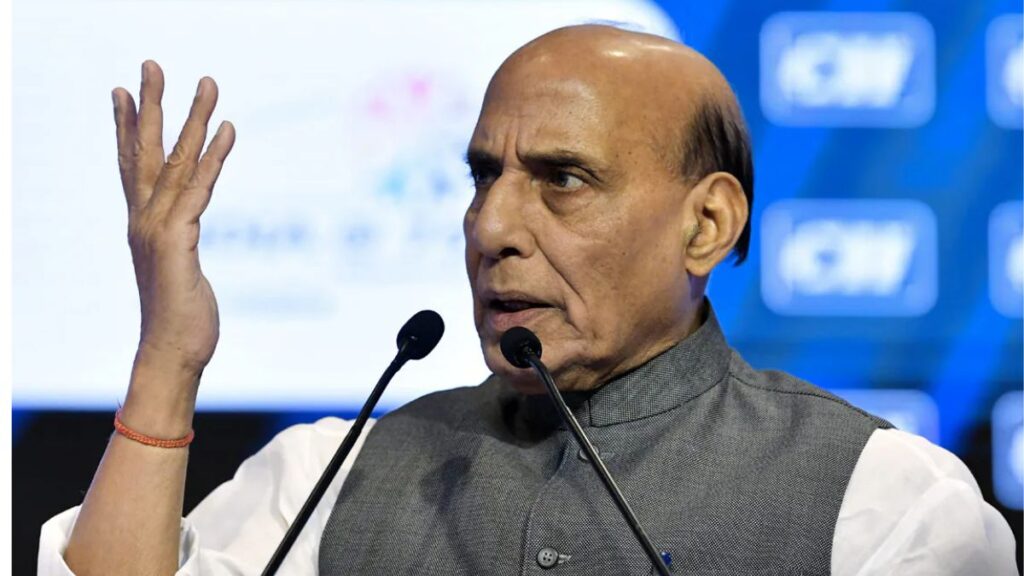Pahalgam Attack Ignored, Balochistan Highlighted — India Calls Out Hypocrisy at Shanghai Meet
In a move that sent a strong diplomatic message, India’s Defence Minister Rajnath Singh refused to sign the Shanghai Cooperation Organisation (SCO) joint declaration during a high-level meeting in Qingdao, China, on June 26, 2025. His decision wasn’t a symbolic gesture — it was a calculated and unapologetic rejection of selective silence on terrorism.
At the heart of the controversy lies a critical omission. The SCO document failed to mention the recent Pahalgam terror attack in Kashmir, where 26 innocent Hindu pilgrims were brutally gunned down — targeted for their faith. Instead, the declaration highlighted attacks in Balochistan, a region frequently invoked by Pakistan to paint itself as a victim while diverting attention from its own role as a global terror hub.
Rajnath Singh’s stand is being hailed across India as a rare moment of zero tolerance in multilateral diplomacy. As the Modi government continues its assertive global posture, this moment reflects a larger shift: India will no longer accommodate selective sympathy, nor will it co-sign hypocrisy in the name of consensus.
SCO’s Double Standards on Terrorism
The SCO’s final communique, meant to showcase regional cooperation, turned into a battlefield of competing narratives. While China and Pakistan pushed for the inclusion of Balochistan-related violence, the document conveniently left out the horrific incident in Pahalgam — where a Kashmiri offshoot of Lashkar-e-Taiba shot 26 Hindu pilgrims at point-blank range.
India’s response? A firm no.
Exact moment when India’s Defence Minister Rajnath Singh refused to sign the Shanghai Cooperation Organisation (SCO) document in China as it didn't condemn the Pahalgam terror attack in Kashmir, but included Balochistan. pic.twitter.com/XgfhjzLlZC
— Aditya Raj Kaul (@AdityaRajKaul) June 26, 2025
Rajnath Singh not only refused to sign the document but also gave a clear speech outlining India’s red lines. He stated that cross-border terrorism is an instrument of state policy used by some nations, without naming but clearly indicating Pakistan. He also referenced Operation Sindoor, India’s cross-border surgical strike in retaliation, as a statement of intent — “The epicentres of terrorism are no longer safe.”
What shocked many observers was the SCO’s silence on Pahalgam, even after India raised the issue formally. Singh noted the absurdity of this omission, while Balochistan — often weaponized by Pakistan in international forums — was included with precise detail.
This led India to withhold its signature, resulting in no joint declaration — a rare occurrence in such summits. According to diplomatic sources, India was the only major country to reject the document, showing a stark difference in approach from other member states, who were willing to compromise for the sake of consensus.
India Draws the Line: A New Diplomatic Era
This incident is more than a one-off disagreement. It reflects the evolving nature of India’s foreign policy under the Modi government. No longer does New Delhi shy away from naming and shaming sponsors of terrorism. In multilateral platforms like SCO — where both China and Pakistan exert influence — India is no longer willing to be a silent participant in diplomatic eyewash.
By refusing to endorse a statement that did not acknowledge the loss of its own citizens — brutally murdered on religious grounds — India has made a broader point. Selective outrage is not diplomacy; it is complicity.
The symbolism of this decision will resonate far beyond SCO. At a time when China and Pakistan try to reframe global narratives, India is showing that it will not play along at the cost of national security or moral clarity. This is the Modi Doctrine in action: assertive, unapologetic, and driven by realpolitik rooted in principle.





















